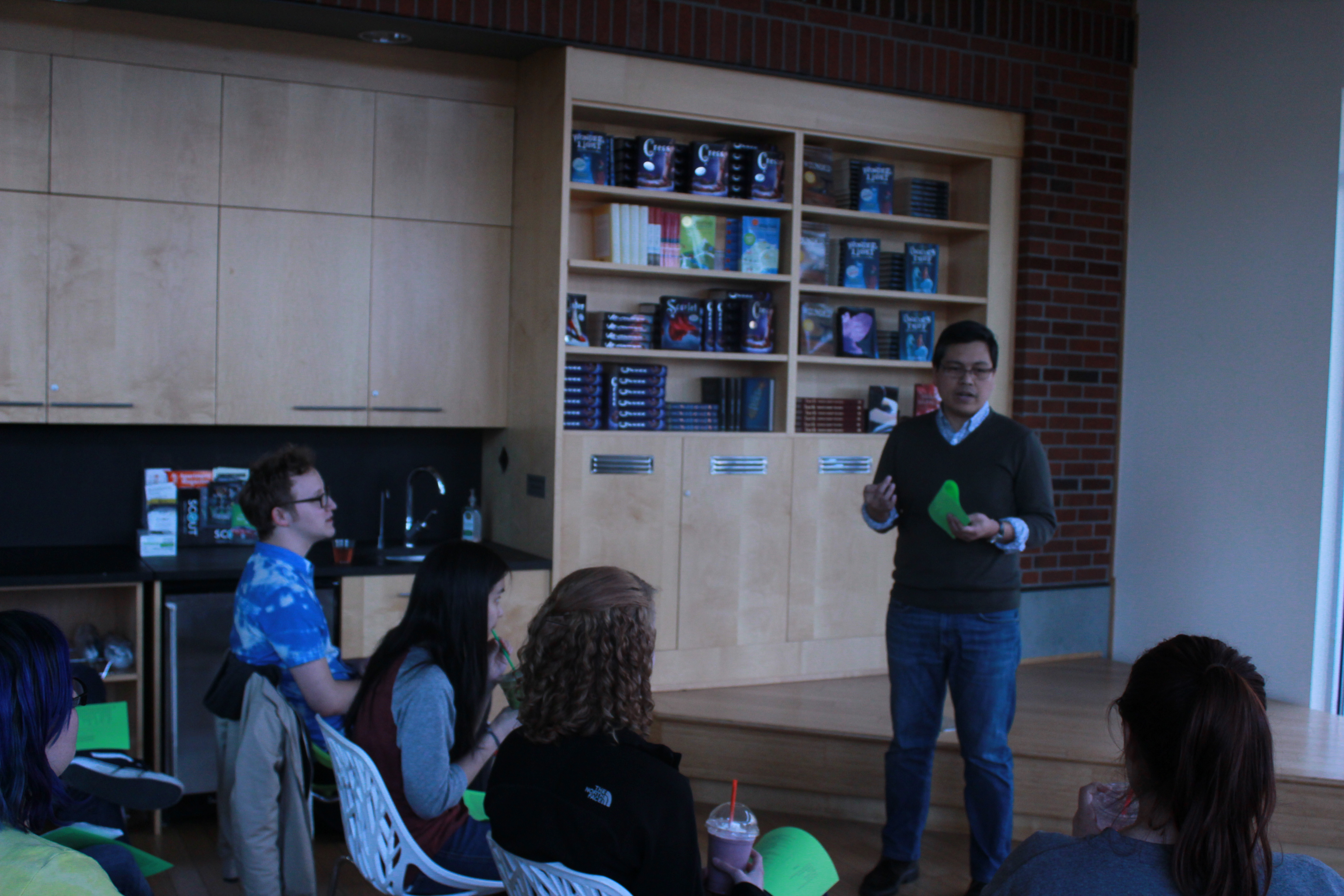JEFF DUNN
Copy Editor
dunnja@plu.edu
“The Emo Revival Ends Here” reads the title to Noisey’s review of Harmlessness, the sophomore album from The World Is A Beautiful Place & I Am No Longer Afraid To Die (abbreviated TWIABP), released Sept. 25 via Epitaph Records.
With a history almost as long as their name, TWIABP has become (by none of their own intentions) the poster-children of the so-called “Emo Revival,” but this new release has cemented their transition into a more accessible indie rock sound without losing the core themes that have permeated their previous releases.
“Emo” as a genre carries certain connotations that elicits negative responses from unaccustomed listeners. People are often turned off by harsh vocals or shouting, which emerged as a major part of the genre from its punk and hardcore roots. Contrary to their previous full length, “Whenever, If Ever,” 2013, “Harmlessness” has no screams. In fact, the album features the band’s female vocalist on several tracks, “January 10th, 2014” being my personal favorite.
Rebranding to a more accessible style is often met with accusations of “selling out” by die-hard fans. Really, that argument only works under the assumption that a band is making its music for you, which is pretty self-centered of you. For shame. It’s a momentous occasion when artists can sustain themselves long enough to really “feel out” their sound and fine-tune it.
Members of the band have noted in interviews that writing this album felt more cohesive than “Whenever, If Ever.”
“For ‘Whenever, If Ever,’ that whole thing was just a mess,” guitarist Derrick Shanholtzer-Dvorak said in an interview with Themusic.com.au. “You know, it’d be like, two or three hours in the studio every couple of weeks, and not everyone would be there. We lost our vocalist during the middle of recording. It just wasn’t focused; we kind of rushed it.”
“Harmlessness” is full of references to the band’s first EP, 2010’s “Formlessness.” Since then, the band has fluctuated in size between four and 10 members. But just because they’ve gone through a few lineup changes doesn’t mean they’ve slowed down at all. If anything, TWIABP has done the opposite – pushing the limits of their sound to new heights. What they’ve done is nearly impossible for many great artists; maintaining their popularity long enough to keep going back to the studio.
On Pitchfork, writer Evan Rytlewski writes:
“TWIABP have succeeded where past generations of emo bands have often stumbled: tidying up their sound without losing any of the exuberance and immediacy that made that sound so striking in the first place.”
Throughout all of their musical endeavors, TWIABP strives to create a sense of community and collaboration. This album doesn’t disappoint in those regards, and takes it a step further to tackle myriad issues from mental well-being and displacement from old homes to new ones, to violent revenge against sexual predators and everything in between.
It’s these themes that landed TWIABP the “emo” title in the first place. The lyrical content is reminiscent of any twenty-something’s search for meaning and purpose in their world.
Writer Ian Cohen summarizes this album better than I ever could in his review from Noisey:
“As much as I want to say “Harmlessness” is what the emo revival was leading up to, that still feels like selling it short[…]The emo revival ends here because its flagship band made the best indie rock record of 2015, period.”



















